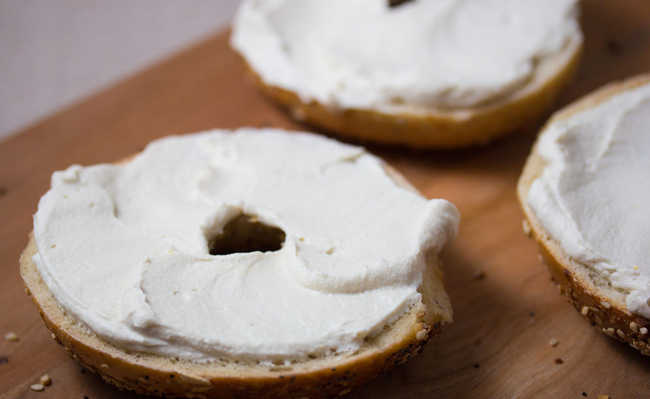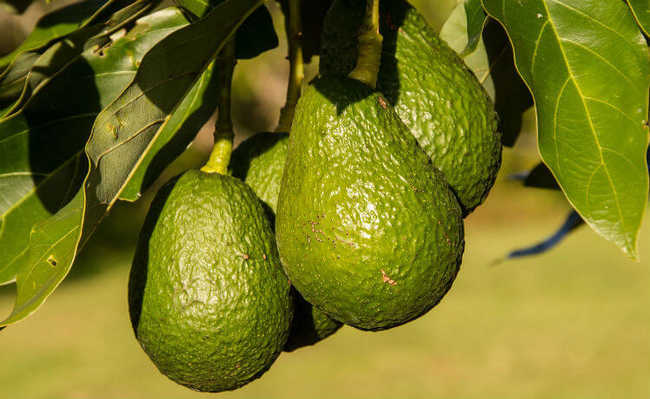Palm kernel oil is widely used in the cosmetic and food industry. Know your benefits
Rich in lauric acid, palm oil also has several health benefits.

Palm seed oil or palm kernel coconut oil are the names given to refer to palm kernel oil. It is extracted from the almond found inside the palm, a fruit given by a palm tree originating from the West coast of Africa, popularly known as oil palm. From it, two types of oils can be found: palm oil, which is extracted from the pulp, and palm kernel oil, obtained from the almond. However, the difference between them lies in the fatty acid compositions present. In palm oil predominate palmitic and oleic; in the palm kernel, the lauric and the myristic.
The palm kernel oil extraction process is carried out by pressing without the addition of chemical solvents. The fruits are steam-heated to partially shrink the almonds, facilitating the separation of their skin. The walnuts are polished to remove possible fiber residues and are sent to a mill where the almonds are separated from the shells. Shells are used as a raw material for activated carbon, while almonds are broken and rolled. In the lamination step, a paste is produced and it is this paste that will be pressed to extract the palm kernel oil.
The oil obtained is found in a semi-solid state at room temperature - it must be heated in a water bath to become a liquid. It is generally composed of lauric acid (between 42% - 52%) and myristic acid (16%).
Lauric acid, which is one of the compounds in breast milk, acts as an anti-inflammatory and has antibacterial and antifungal properties.
Its consumption helps fight inflammation such as arthritis and rheumatism; acts against fungi, viruses and bacteria - causing, for example, the inhibition of the herpes virus and bacteria causing gastritis - due to the presence of lauric acid. The oil doesn't leave a taste in the food and it doesn't smell like babassu or beach coconut, and it can be used as a substitute for margarine in cake and bread recipes. However, palm kernel oil contains saturated fat and should not be eaten in excess as it can cause health problems.
Palm kernel oil has several cosmetic uses. It is a great conductor for massage, provides nourishment to the skin and helps with de-inflammation. It helps fight aging and, as it is emollient and humectant, it gives the skin softness and lubrication, in addition to preserving its natural elasticity. The anti-inflammatory property in lauric acid helps in the treatment of acne, being a natural alternative and free of some chemical compounds that can be harmful to human health and skin, such as parabens, which are present in many cosmetic products. It can be used on any type of skin, even those with an oily tendency, since palm kernel oil is quickly absorbed, not obstructing the pores, thus allowing the skin to breathe.
It also helps nourish damaged hair and treat dandruff. As it is pasty at room temperature, the application of oil to the hair is facilitated, and it can be used either pure or mixed with moisturizing creams to enhance the effects.
Another interesting use of palm kernel oil is that it can be applied to wounds on pets, especially dogs and cats, helping in the de-inflammation process (when in doubt, always consult a veterinarian). It also serves to restore furniture, giving it shine and a new look, as well as lubricating rusty hinges. To do this, just dampen a cloth with oil and pass it over the furniture.
Palm extraction and its impact on the environment
The diverse applications of the two types of oils that can be extracted from palm are, therefore, considered to be most responsible for current deforestation, mainly in Indonesia and Malaysia, where forests were sacrificed to convert into oil palm and palm kernel plantations. It is a highly profitable activity for growers as there is a lot of demand for export.
This situation gave rise to the Roundtable for Sustainable Palm Oil, the RSPO, an organization that has developed a set of environmental and social criteria to be met by companies, aiming to minimize the negative impacts of oil cultivation on the environment and the communities involved. .
Compliance with these criteria makes companies eligible to receive the Sustainable Palm Oil Certificate (CSPO) and only after certification can producers claim to produce sustainable palm oil.
Check out the WWF video on the issue of world production and the importance of sustainable production of palm oils.
In May 2010, the Federal Government launched the Sustainable Palm Oil Production Program, which seeks to make the production of oil from palm sustainable and contribute to the preservation of the Amazon forest. This program prohibits the clearing of natural vegetation for the planting of palm, allowing only the planting and expansion in already deforested areas.
Therefore, before using or consuming products that contain palm or palm kernel oil, make sure it is registered by the RSPO, and that it is a sustainable oil that has not harmed the environment. You can buy sustainable palm oil and palm kernel oil at eCycle store.










